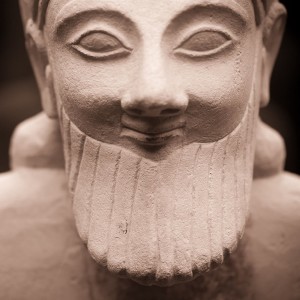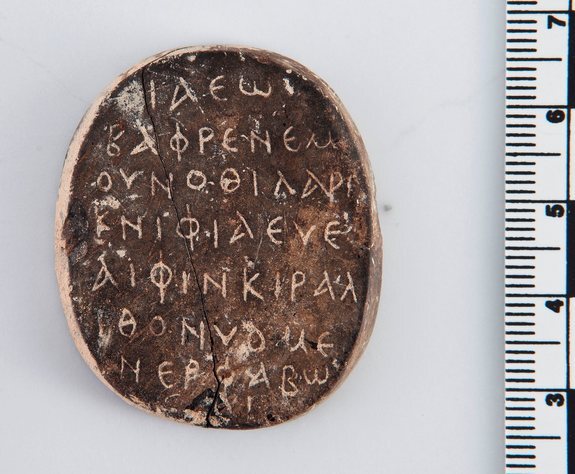The History of Cyprus Podcast
Welcome to The History of Cyprus Podcast -- a monthly series exploring the island’s past from 10,000 BCE to the 20th century. Each episode features in-depth conversations with leading scholars in archaeology, linguistics, political and social history, bringing academic insight to a wide audience. Together, we uncover the languages, cultures, conflicts, and legacies that shaped one of the Mediterranean’s most storied crossroads. Whether you’re a student, a history enthusiast, or just curious about Cyprus, this podcast offers something for everyone -- rooted in research, driven by storytelling. If you’d like to reach me, my name is Andreas. Please feel free to send me an email at cyprusthepodcast@gmail.com --------------------------------------------------------------- Follow The History of Cyprus Podcast Instagram and support the show on Patreon: https://www.patreon.com/TheHistoryofCyprusPodcast https://instagram.com/thehistoryofcyprus *The podcast image, ”Dressed for the Gods” (250BC) is from the British Museum taken by William Warby. Check out more of his work at flickr.com/photos/wwarby/
Episodes

Sunday Nov 02, 2025
Sunday Nov 02, 2025
The legal status of women in medieval Cyprus was influenced by a mix of Byzantine, Frankish, and local customs. While legal frameworks varied, women often faced limitations on property ownership and inheritance rights. However, some women managed to attain positions of influence and power, challenging traditional norms. Despite societal constraints, women in medieval Cyprus demonstrated resilience, resourcefulness, and adaptability. Their contributions and agency, whether in domestic spheres, economic activities, or shaping political alliances, left an indelible mark on the island's history. Join me this month as I welcome back Dr. Angel Nicolaou-Konnari!

Wednesday Oct 15, 2025
Wednesday Oct 15, 2025
Stefano Lusignan (also known as Étienne de Lusignan) was a member of the Lusignan family, which ruled over Cyprus during the medieval period. He is known for his historical works, particularly his chronicles that provide valuable insights into the history and culture of Cyprus during his time. Though writing at the tail end of the Venetian Period, his writings often focused on the Lusignan dynasty and its rule over the island. His works are considered important sources for understanding the medieval history of Cyprus and provides us some insight into the perception of medieval women which were stereotyped as either wholly pious or susceptible to immorality -- perceptions which are simplistic and problematic. This excerpt provides both perspectives as a springboard into next month's episode where we discuss Women in Medieval Cyprus with returning guest, Angel-Nicolaou Konnari.

Friday Oct 10, 2025
Friday Oct 10, 2025
Big things are coming! I’m sharing some exciting updates about what’s ahead for The History of Cyprus Podcast — including new episodes on the Cypro-Minoan script, ancient Cypriot city-states, and even a chat with The Met Museum curators on the grand reopening of the Cesnola Collection.

Thursday Oct 02, 2025
Thursday Oct 02, 2025
In this episode, we explore the fascinating history of the Kigalas family, a prominent Cypriot family that played a significant role in the religious and intellectual landscape of the 16th and 17th centuries. My guest, Ioannis Kyriakantonakis, provides an in-depth look at the political and religious dynamics of the Kigalas family. At the heart of our discussion is Matthaios Kigalas, a highly influential Orthodox cleric and scholar who moved to Venice, where he became a key figure in both Orthodox and Catholic circles. We also trace the paths of his sons—Ioannis, Demetrios, and the enigmatic Hilarion Kigalas—who pursued careers in Renaissance Europe as scholars, physicians, and clerics. Through the lives of the Kigalas family, we uncover broader themes of identity, faith, and the fluid boundaries between East and West. Their story offers valuable insights into religious diplomacy, intellectual exchange, and the legacy and impact of Cypriot scholars abroad.You can purchase Ioannis' new book here: https://papazissi.gr/product/istorikos-logos-tis-megalis-ekklisias-kata-tin-proimi-neoterikotita/

Monday Sep 15, 2025
Monday Sep 15, 2025
"The Charites of Cyprus infused him with charm,With the tongue of Homer and the mind of Plato.-A distich from Ioannis Kigalas' portraitIoannis Kigalas (Greek: Ιωάννης Κιγάλας; Italian: Giovanni Cigala, c. 1622 – c. 5 November 1687) was a Cypriot scholar and professor of Philosophy, Language and Logic at the University of Padua. Along with his brothers, Demetrios and Hilarion, they were educated at the Greek College of Rome, each pursuing distinct but interconnected careers within the intellectual and ecclesiastical spheres of their time. In this excerpt we hear from Ioannis' colleague at the University of Padua, Charles Patin, professor of medicine, who praises Kigalas intellectual prowess. This leads us to next month's episode on the Kigalas Family.Here is the text in full:He cultivated the purity and elegance of the Attic language so earnestly that if the Attic Siren Isocrates or Xenophon’s muse were to revive, they would undoubtedly recognize in this man all the charms and beauty of their language. However, while he took delight in the more pleasant literary studies, he did not neglect the more rigorous disciplines; for he applied himself diligently to philosophy and theology, in which he excelled so much that, after demonstrating his sharp intellect through numerous public examinations, he was deservedly counted among the doctors of philosophy by the judgment of the wisest men.

Tuesday Sep 02, 2025
Tuesday Sep 02, 2025
Cyprus' landscape is dotted with castles -- most famously by those nestled on the Kyrenia mountain range -- many which predate the Lusignan Period. First built by the Byzantines to protect Cyprus' northern coast, these castles would become fortified and expanded by the Franks. But Western sources circa twelfth and thirteenth centuries speak of castles throughout the main cities including "castrum Famagustam," "castellum quod dicitur Baffes" and "castellum quoddam firmissimum" in Nicosia. Were there castles there too? And for that matter, why were they later abandoned? Today my guest is renowned castellologist, Dr. James Petre, whose definitive work "Crusader Castles of Cyprus" frames the bulk of this episode.

Friday Aug 15, 2025
Friday Aug 15, 2025
Our primary source this month comes from the 12th century English chronicler, Roger of Hoveden (Howden). This excerpt was chosen as it references a number of castles that dotted the Cypriot landscape during Richard the Lionheart's campaign. You'll hear him refer to Buffavent (Buffavento), Kantara, Dieu D'Amour (a possible corruption of the Greek name, Didymus -- now St. Hilarion) and an unknown castle in Nicosia called Cherin. Its significance is that the castles predate Richard's conquest (i.e., they are Byzantine structures) and serves as a nice segue into my interview next month with Dr. James Petre on the Castles of Cyprus!

Sunday Aug 10, 2025
Sunday Aug 10, 2025
In this bonus episode, Dr. Christian Körner takes us into the world of Iron Age Cyprus and its city-kingdoms, exploring the foundation myths that shaped their identities. With legendary figures like Pygmalion, who fashioned a statue that came to life; Myrrha, the tragic mother of Adonis; and Teucer, the exiled half-brother of Ajax who is said to have founded Salamis. Other examples include Acamas, son of Theseus, who was linked to the founding of Soli; Agapenor, the Arcadian king who settled in Paphos after the Trojan War; and Kinyras, the mythical king of Cyprus associated with Aphrodite’s cult and with musical and priestly traditions that echo Greek heroic ideals. Körner explains how these myths should be seen as intentional histories, crafted to serve political, cultural, or even propagandistic purposes at the time they were written down. While many stories link Cypriot origins to Athenian or Homeric heroes, others, like those of Amathus and Paphos, emphasize local roots. He also highlights how these myths often aimed to explain place names, assert legitimacy, or reinforce alliances--effectively serving as ancient “branding campaigns” for the cities, reinforcing cultural ties while also asserting the island’s unique local identity.

Saturday Aug 02, 2025
Saturday Aug 02, 2025
Calocaerus (Greek: Καλόκαιρος; d. 334 AD) was a Roman usurper who led a short-lived revolt against Emperor Constantine I in Cyprus. Appointed in 330 AD as Magister pecoris camelorum ("Master of the Flock and Camels"), a position with uncertain significance, Calocaerus proclaimed himself emperor in 334 AD. His rebellion, however, was swiftly suppressed by Flavius Dalmatius, Constantine's half-brother, and he was executed in Tarsus. While often dismissed as an inconsequential footnote, the context of his revolt raises intriguing questions.
In this episode, I’m joined by Dr. Maria Castello, whose research sheds new light on this period. Maria suggests that Calocaerus’ rebellion might have been more significant than previously thought. The timing, occurring shortly after a devastating earthquake, and the dramatic manner of his execution hint at broader implications.

Tuesday Jul 15, 2025
Tuesday Jul 15, 2025
The Calocaerus Revolt (334 CE) was an uprising led by a certain Calocaerus, the Magister Pecoris Camelorum (Master of the Flock and Camels) in Cyprus, who declared himself emperor. The revolt was short lived and ruthlessly suppressed in the same year by Flavius Dalmatius, half brother to Emperor Constantine I. We know of the events from historians such as St. Jerome (Jerome of Stridon), St. Theophanes the Confessor and (our earliest source) from Sextus Aurelius Victor in his work De Caesaribus. Written in the 4th century, it provides a concise summary of the lives and reigns of Roman emperors from Augustus to Constantius II, and it draws heavily from the Enmannsche Kaisergeschichte, a lost source that served as a common framework for several late Roman historical accounts. This short (but important) source springboards us to next month's episode: the little known and enigmatic Calocaerus Revolt with Maria Castello!











